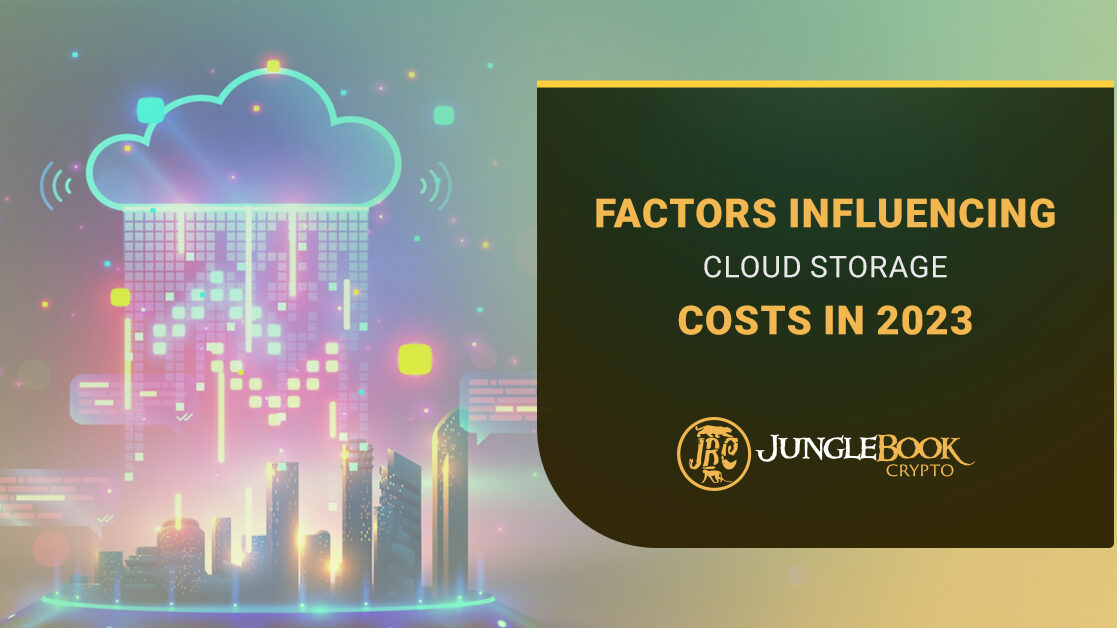
Welcome to the realm of digital storage, where every byte comes with a price tag, and the choice of cloud storage reverberates not just in the ethereal expanse but also in the financial corridors of your organization. In this realm, where data reigns supreme, the dynamics of cloud storage costs in 2023 are akin to charting unexplored territories. As we stand at the intersection of innovation and necessity, this blog aims to be your compass, guiding you through the intricate landscape of factors that determine cloud storage expenses.
Buckle up as we navigate the complexities and unveil the secrets that determine the cost of storing our digital footprint in the cloud.
What is Cloud Storage?
Cloud storage serves as a virtual sanctuary for our data. Unlike traditional storage methods relying on physical devices, cloud storage harnesses the power of remote servers accessible through the internet. It functions as a secure, off-site repository, ensuring that data can be stored, accessed, and managed seamlessly from anywhere with an internet connection. In essence, cloud storage transcends the limitations of physical boundaries, offering a dynamic and scalable solution that has become integral to our modern, interconnected lives.
Why is Cloud Storage Important?
Cloud storage addresses key challenges and fulfills the evolving needs of individuals and businesses. One of its primary virtues lies in providing a secure and easily accessible repository for data. In an era where the volume of digital information is exploding, cloud storage ensures that users can store and retrieve their data effortlessly from anywhere with an internet connection.
Its significance further extends to data backup and recovery, offering a reliable solution to safeguard against data loss due to unforeseen circumstances. Additionally, the scalability of cloud storage allows users to adapt to changing storage requirements without the need for substantial upfront investments in physical infrastructure.
Factors Influencing Cloud Storage Costs
Cloud storage costs are influenced by a multitude of factors, each contributing to the overall pricing structure. Understanding these determinants is crucial for users aiming to navigate the complex landscape of cloud storage expenses. Here are the key factors that play a pivotal role in shaping the costs associated with cloud storage:
Storage Capacity:
The amount of data you intend to store is a fundamental factor. Providers often charge based on the volume of storage space required, measured in gigabytes (GB) or terabytes (TB).
Data Transfer Rates:
The speed at which you transfer data in and out of the cloud affects costs. Some providers may charge for both uploads and downloads, while others may offer varying rates based on geographic regions.
Additional Features:
Different providers offer a range of additional features, such as encryption, data redundancy, and automated backups. These premium features can impact costs but also enhance the security and reliability of your stored data.
Service-Level Agreements:
SLAs define the level of service a provider commits to. Higher service levels often come with a higher price tag but guarantee improved performance, uptime, and support.
Provider Pricing Models:
Each cloud storage provider adopts a unique pricing model. Some charge based on a pay-as-you-go system, while others offer tiered plans with different levels of service and associated costs.
Type of Storage (Standard Vs. Infrequent Access):
Some providers offer different types of storage classes with varying costs. Standard storage is often more expensive but provides faster access, while infrequent access storage is cheaper but may have retrieval latency.
Data Redundancy and Durability:
The level of redundancy and durability offered by a provider influences costs. More robust redundancy measures, such as data replication across multiple locations, may incur higher fees but enhance data resilience.
JBC Cloud Storage – A Game-Changer
JBC goes beyond being a mere cloud storage provider; it’s an innovator. The integration of JBC smart devices introduces a paradigm shift, enhancing the entire cloud storage experience. One standout feature is the extended access to recordings. JBC understands the value of preserving moments, allowing users to access their recordings for an extended period, ranging from 14 to 30 days. JBC takes a unique stance, prioritizing cost-efficiency without compromising quality. The comparative analysis showcases how JBC offers value for investment, making it an attractive option in the market.
The Concluding Thoughts
In conclusion, understanding cloud storage costs in 2023 is akin to navigating a maze. Each provider offers a unique path with its own set of challenges and rewards. As we’ve explored the intricacies of pricing models, compared industry giants and niche players, and delved into the factors shaping costs, it’s evident that there is no one-size-fits-all solution. The ideal choice hinges on individual or business needs, striking a delicate balance between cost efficiency and essential features. As we venture into the future, anticipating trends like more flexible pricing models and enhanced security measures, the cloud storage arena continues to evolve.
What factors do you find most crucial when choosing a cloud storage provider for your needs?